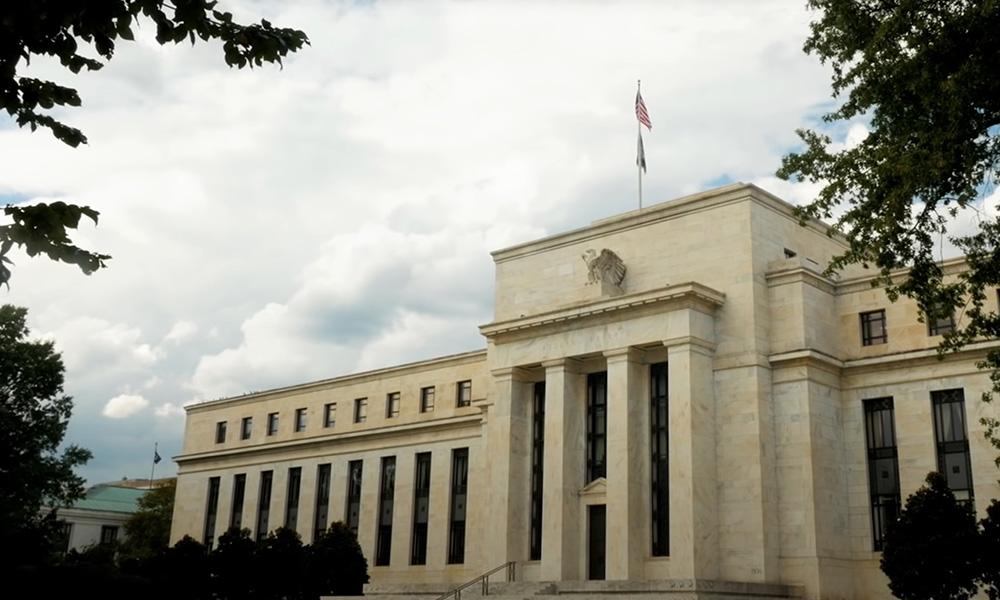Trump's strong Fed strategy! Milan's nomination wins a key Senate nomination, potentially reshaping US monetary policy
2025-09-11 09:05:18

Milan's nomination was approved by the Senate Banking Committee, with a clear partisan divide
A heated exchange in the Senate Banking Committee
On Wednesday (September 10th), the Republican-controlled U.S. Senate Banking Committee voted 13-11 to formally send Milan's nomination to the Federal Reserve Board to the full Senate for consideration. The result clearly reflected the partisan divide: all Democratic senators voted unanimously against the nomination, while Republican senators unanimously supported Milan's nomination. This polarized vote highlights the political maneuvering behind Milan's nomination. Democrats worry that Milan's appointment will further weaken the Fed's independence and make it more inclined to serve Trump's economic policy goals. Republicans, on the other hand, believe that Milan's appointment will inject new vitality into the Fed and ensure that its policies are more responsive to current economic needs.
The political considerations behind the nomination
Democratic Senator Elizabeth Warren bluntly stated that Milan's nomination "is a test of Trump's loyalty." She believes that Milan's every vote at the Federal Reserve could be directly influenced by Trump's political intentions, and this "subordination" could threaten the Fed's credibility as an independent institution. Meanwhile, Republican Senator and Senate Banking Committee Chairman Tim Scott praised Milan, saying he possesses "deep experience, proven leadership, and a clear commitment to ensuring a strong and competitive U.S. economy." Scott's statement undoubtedly added further political support to Milan's nomination and paved the way for subsequent Senate review.
Milan may miss the Fed's September meeting as time runs out for confirmation
Time becomes a key obstacle
Although Milan's nomination successfully passed the Senate Banking Committee, his final confirmation still faces time constraints. According to a Republican aide familiar with Senate procedures, due to the Senate's complex rules, Milan's nomination could be confirmed as early as Monday, September 15th. However, the Federal Reserve's policy meeting is scheduled for September 16th and 17th, meaning that even if Milan were confirmed at the last minute, he would have little time to complete the necessary procedures, including being sworn in, and would be unlikely to make it to the crucial meeting. This is undoubtedly a pity for Trump, as he is eager for Milan to quickly exert influence within the Fed and promote his preferred loose monetary policy.
Senate majority paves the way for Milan
Notably, the Republican Party holds a 53-47 majority in the Senate, providing a relatively stable base of support for Milan's nomination. Even if Milan is unable to secure confirmation in time for the September 15th vote, the Republican majority means he could be successfully appointed soon. Once Milan officially becomes a Fed governor, he will become a key ally of Trump within the Fed, creating a more direct opposition to current Chairman Jerome Powell.
Trump's "Federal Reserve Reform Plan": Milan is just the first step
Trump's long-standing frustration with the Fed
Trump has long expressed strong dissatisfaction with Federal Reserve Chairman Powell's monetary policy, particularly his insistence on maintaining high interest rates to combat potential inflation. Trump believes that high interest rates are hindering US economic growth, especially given signs of weakness in the job market. Milan's nomination is a significant step in Trump's attempt to reshape the Fed's decision-making structure by installing trusted aides. While Milan did not explicitly support an immediate rate cut at his confirmation hearing last week, he stated that inflation is cooling and that tariffs would not reverse this trend. This stance aligns with Trump's advocacy for loose monetary policy, earning him favor with Republican lawmakers.
Powell's successor has emerged . Powell's term as Federal Reserve Chairman expires in May 2026, and Trump has begun searching for a successor. All three current candidates reportedly support significant reforms to the Fed to address what Treasury Secretary Scott Bessent has criticized as "Federal Reserve missteps." These reforms could include deeper interest rate cuts, a more flexible monetary policy framework, and even a reassessment of the Fed's independence. Milan's appointment will undoubtedly provide crucial internal support for these reforms.
Another controversial appointment of a close confidant
In addition to Milan, Trump is also attempting to install another close aide on the seven-member Federal Reserve Board. He previously sought to oust incumbent Governor Lisa Cook, accusing her of mortgage fraud. Cook, however, has strongly denied the allegations and has filed a lawsuit to block Trump's dismissal. This incident has further intensified tensions between Trump and the Fed, making Milan's nomination even more crucial.
Fed policy direction: Expectations of rate cuts rise
Weak job market fuels calls for rate cuts
As Milan's nomination progressed, discussions on monetary policy within the Federal Reserve intensified. Several Fed policymakers, including Powell, indicated that, given recent signs of weakness in the job market, they favored a rate cut at the September 16-17 meeting. Economic data released on September 9th indicated a significant cooling in the US job market, even before Trump took office and began raising tariffs. This provided further support for the Fed's decision to cut rates. Investors' expectations for future Fed interest rates also adjusted accordingly, with a general consensus that a rate cut was becoming more likely.
Milan's monetary policy stance
Although Milan did not explicitly support an immediate rate cut at the hearing, his views on cooling inflation and the impact of tariffs align with the direction of loose monetary policy. This makes him a potentially important voice within the Fed in support of rate cuts. Milan will succeed Governor Adriana Kugler, who unexpectedly resigned in August of this year, for the remainder of her term, which runs until the end of January 2026. Kugler consistently advocated for holding interest rates stable to prevent a rebound in inflation throughout her tenure, and Milan's appointment could introduce new uncertainties to the Fed's policy direction.
Summary: A profound change in the Federal Reserve's power structure
Milan's nomination is not only another bold attempt by Trump to influence the Federal Reserve, but also signals a possible shift in US monetary policy. From the Senate Banking Committee's vote to the urgency of the confirmation process, and finally Trump's sweeping plan to overhaul the Fed, these events foreshadow a profound shift in the power dynamic within the central bank. While Milan may not be able to make it to the September policy meeting, his appointment is virtually certain. As a close ally of Trump, Milan will play a crucial role at the Fed's decision-making table, helping him push for policies more aligned with his economic vision. Meanwhile, partisan divisions and concerns about the Fed's independence add further controversy to this nomination. Every Fed decision is likely to be a focal point for the global economy, and Milan's appointment will undoubtedly add further drama to the situation.
- Risk Warning and Disclaimer
- The market involves risk, and trading may not be suitable for all investors. This article is for reference only and does not constitute personal investment advice, nor does it take into account certain users’ specific investment objectives, financial situation, or other needs. Any investment decisions made based on this information are at your own risk.





















